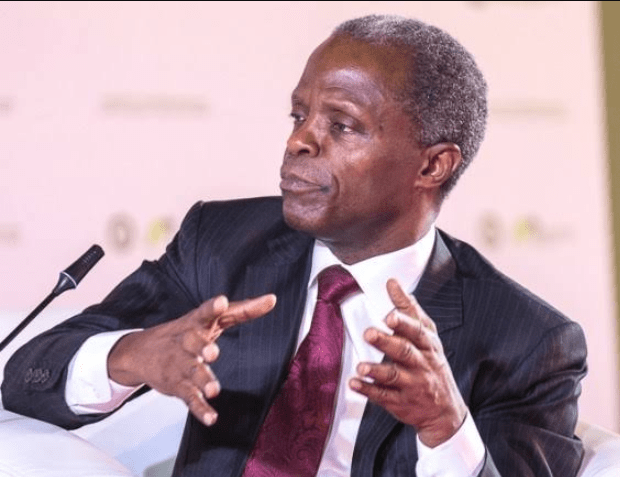
Vice President Yemi Osinbajo has estimated Africa’s cross-border informal trade at $93 billion.
Osinbajo, who stated this in a message sent to a roundtable on industrialisation in Africa with the theme: “Positioning African Industries for Economic Transformation and Continental Free Trade,” organised by the Manufacturers Association of Nigeria (MAN) to celebrate its Golden Jubilee, stressed the need to rapidly operationalise effort by Afreximbank to establish a Pan-African Payments and Settlement Platform.
He said the Pan-African Payments and Settlement Platform will go a long way in creating the desired continental payments system and also in facilitating cross-border informal trade acrosst he continent.
The Vice President, according to a statement by his spokesman, Laolu Akande, also declared that the African Continental Free Trade Area (AfCFTA) offers limitless opportunities for the industrialisation of Africa, urging authorities to take the right actions to actualise them. He stated that such actions include the protection of local industries and improving value chains.
According to him, “for certain, the AfCFTA is indispensable if industrial development is to take off in Africa because it offers wider markets and economies of scale which are essential for manufacturing to be competitive.
“We must take policy actions to create an environment in which businesses can thrive. To start with, we must adopt the right type of macroeconomic and industrial policies.
“It is important for African governments to provide a stable macroeconomic environment which avoids and smoothens out volatility in prices, sharp deteriorations in the current account and budget deficits and of course, rapid accumulation in debt burdens.”
Speaking on actions that would boost manufacturing, Osinbajo said, “on the industrial side, policies like tariffs, quotas, subsidies and non-tariff barriers which protect our infant industries so that they can create jobs and enable learning are vital.”
“Well negotiated rules of origin are important in the context of the free trade agreements as they are key to preventing trans-shipment and the deflection of trade. Without them, firms from non-state parties could set up simple labelling operations in one member-state with a view to shipping already finished products to another member State without really adding any value,” the Vice President said.
Osinbajo observed that it is important for MAN to involve itself in an advisory capacity to government negotiators “as we go further into the rules of origin negotiations”. The rules negotiations, he said, have started, “but I think as we go on, we should get more contributions and advise from MAN”.
“Our manufacturers must also strive to become competitive after clearly specified time periods so that they can withstand the ever present danger of stiff competition from imports. In other words, while our manufacturing industries must be nurtured and supported, they cannot remain infants forever,” he said.
Osinbajo, who is travelling to Tanzanian today, will be visiting the African Court of Justice and Human Rights (ACJHR), an African Union agency in Arusha, among other engagements before he returns to Abuja on Monday.